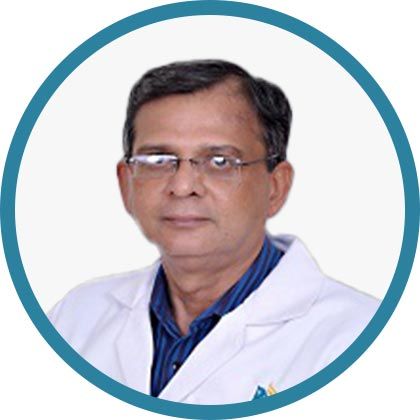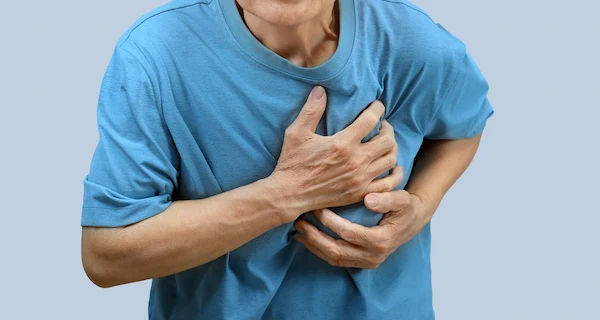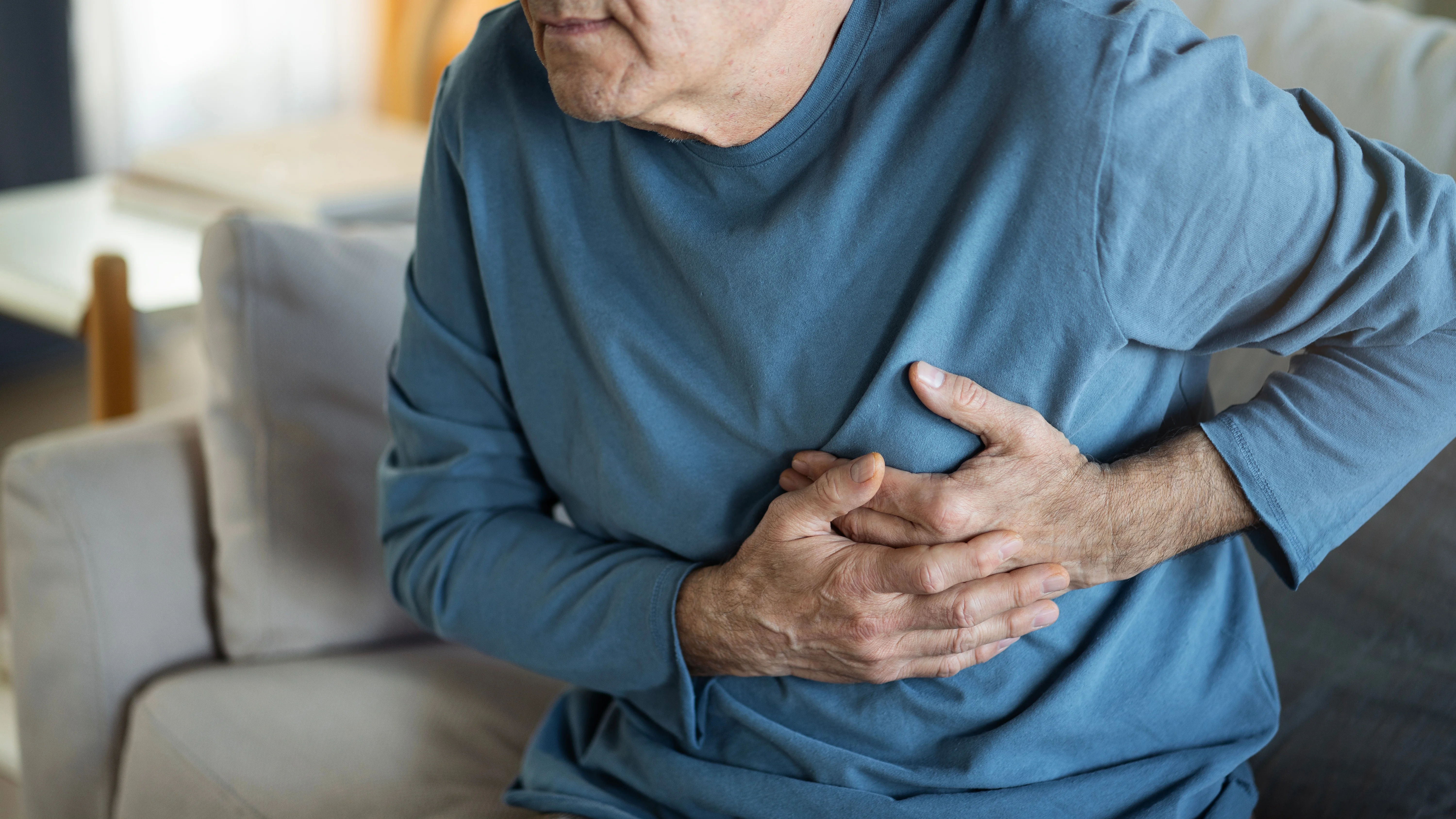Chest Pain: Different Causes and What They Feel Like
Know about chest pain, when it's a medical emergency, how to differentiate cardiac, heart and gastrointestinal problems, and more.

Written by Dr. Rohinipriyanka Pondugula
Reviewed by Dr. M L Ezhilarasan MBBS
Last updated on 13th Jan, 2026

Introduction
Chest pain is one of the most common reasons people visit the emergency room, and for good reason. Its immediate association with heart attacks triggers a well-founded alarm. However, not all chest pain is created equal. The sensation can vary dramatically—from a sharp, stabbing feeling to a dull, persistent ache or a crushing pressure. Understanding what leads to chest pain different in nature and origin, is the first step toward addressing it correctly. This article will demystify the various causes of chest discomfort, from life-threatening cardiac events to common musculoskeletal strains and digestive issues. By learning to recognise the key differences in how this pain manifests, you can make more informed decisions about your health and know when it's crucial to seek immediate medical help.
When Chest Pain is a Medical Emergency: Recognising Red Flags
Before delving into the different types, it's vital to understand when chest pain signifies an immediate emergency. Certain symptoms should never be ignored or waited out.
Emergency symptoms
If any of the following accompany your chest pain, seek emergency medical attention without delay:
- Pressure, Squeezing, or Crushing sensation in the centre of your chest that lasts more than a few minutes or comes and goes.
- Pain that radiates to your shoulder, arm, back, neck, jaw, teeth, or stomach.
- Shortness of breath, often sudden and severe.
- Cold sweat, nausea, lightheadedness, or dizziness.
- A sudden feeling of doom or extreme anxiety.
Consult a General Physician for Personalised Advice
These are classic signs of a heart attack or another catastrophic event like an aortic dissection. Do not drive yourself to the hospital. Calling an ambulance ensures help begins the moment paramedics arrive.
Cardiac Causes: When the Pain Originates from the Heart
Problems with the heart are often the primary concern when chest pain arises. The nature of the discomfort can help differentiate between cardiac conditions.
Heart Attack (Myocardial Infarction)
A heart attack occurs when blood flow to a part of the heart is blocked. The pain is often described as an unbearable pressure, like "an elephant sitting on my chest." It's typically centralised and may be accompanied by sweating, nausea, and shortness of breath. It does not usually change with movement or breathing.
Angina
Angina is chest pain caused by reduced blood flow to the heart, often a symptom of coronary artery disease. It feels similar to a heart attack, pressure, squeezing, or fullness, but is usually triggered by physical exertion or emotional stress and relieved by rest. Unstable angina is more dangerous and can occur at rest, acting as a warning sign for a potential heart attack.
Pericarditis
This is inflammation of the sac surrounding the heart. The pain is typically a sharp, stabbing sensation centred in the chest. A key identifier is that the pain often gets worse when you lie down or take deep breaths and may improve when you sit up and lean forward.
Aortic Dissection
This rare but life-threatening condition involves a tear in the inner layer of the aorta. The pain is often described as a sudden, severe, tearing or ripping sensation in the chest and back. It requires immediate surgical attention.
Pulmonary Causes: Problems in the Lungs and Airways
The lungs and surrounding tissues are another common source of chest discomfort that feels different from cardiac pain.
Pulmonary Embolism
A pulmonary embolism is a blood clot in the lung. It causes sudden, sharp chest pain with shortness of breath that is often severe and worsens with deep breathing, coughing, or eating. It may also be accompanied by a cough that produces bloody sputum.
Pleurisy
Also known as pleuritis, this is inflammation of the membranes that surround the lungs. The primary symptom is a sharp chest pain that occurs when you breathe in and out deeply or cough. The pain is localised and you can often pinpoint it.
Pneumonia
A lung infection like pneumonia can cause chest pain, which is often a sharp or stabbing sensation that is worsened by breathing or coughing. It's usually accompanied by fever, chills, and a productive cough.
Gastrointestinal Causes: It Might Be Your Gut
Surprisingly, many episodes of chest pain that come and go are related to the digestive system. The oesophagus runs directly behind the heart and can cause remarkably similar sensations.
GERD and Heartburn
Gastroesophageal reflux disease (GERD) is perhaps the most common mimic of heart pain. Stomach acid washing back into the oesophagus causes a burning sensation (heartburn) behind the breastbone. This pain can radiate to the throat and is often worse after eating, when lying down, or when bending over. A unique insight is that GERD pain can sometimes be relieved with antacids, which would not affect cardiac pain.
Esophageal Spasm
The oesophagus can experience painful muscle spasms that feel like a sudden, intense squeezing or pressure in the chest, easily mistaken for angina. These spasms can be triggered by swallowing hot or cold liquids.
Musculoskeletal Causes: Pain from the Chest Wall
Sometimes, the pain isn't from an internal organ at all but from the structure of the chest itself.
Costochondritis
This is inflammation of the cartilage that connects your ribs to your breastbone. The pain, often sharp and aching, can be reproduced by pressing on the affected area of your chest. It can be mistaken for heart attack pain due to its location, but it is typically localised and tender to the touch.
Muscle Strain or Injury
Heavy lifting, a new exercise regimen, or even a persistent cough can strain the chest wall muscles and cause pain. This type of pain is usually aching and tender and worsens with specific movements or when taking a deep breath.
Other Potential Causes of Chest Discomfort
Panic Attack and Anxiety
Intense anxiety or a panic attack can cause chest tightness, a racing heart, sweating, and shortness of breath—symptoms eerily similar to a heart attack. This is often described as a feeling of being unable to get a full breath. The episode usually subsides once the anxiety passes.
Shingles (Herpes Zoster)
If you've had chickenpox, the virus can reactivate later in life as shingles. If the reactivation occurs in a nerve that serves the chest area, it can cause a burning, tingling pain and a subsequent rash that wraps around one side of your torso.
Key Differences: A Quick Comparison Guide
Conclusion
Chest pain is a complex symptom with a vast range of potential causes, from the critically urgent to the benign. The key to navigating this symptom is understanding the nuances—the quality, location, triggers, and accompanying signs that make each type of pain different. While this guide provides a framework for understanding, it is not a substitute for professional medical diagnosis. Listening to your body is crucial. If you experience any warning signs, especially those indicative of a heart attack or pulmonary embolism, act immediately. For persistent or recurring chest pain on the left side or elsewhere, even if it seems minor, a proper diagnosis is essential. If your chest discomfort is persistent or you're unsure of its cause, consult a doctor online with Apollo24|7 for a preliminary evaluation and peace of mind. They can help determine if you need further tests or an in-person visit.
Consult a General Physician for Personalised Advice
Consult a General Physician for Personalised Advice

Dr. Ajay K Sinha
General Physician/ Internal Medicine Specialist
30 Years • MD, Internal Medicine
Delhi
Apollo Hospitals Indraprastha, Delhi
(200+ Patients)

Dr. Ramya Hari
General Practitioner
18 Years • Medical Head & Family Physician, DG Shipping Approved Doctor, Panel Physician - UK Visa Medicals
Chennai
Apollo Medical Centre Kotturpuram, Chennai
Dr. Indrajit Das
General Physician/ Internal Medicine Specialist
4 Years • "MD (Internal medicine) : Gauhati Medical College and Hospital, Guwahati (2018-2021) MD (Pathology) : Gauhati Medical College and Hospital, Guwahati (2012-2015) MBBS (Bachelor of Medicine, Bachelor of Surgery) : Silchar Medical College, Assam (2003-2008) "
Guwahati
Apollo Excelcare Hospital, Guwahati

Dr. Hariprasath J
General Physician/ Internal Medicine Specialist
19 Years • MD (Gen Med), FCCP, Dip (Diabetology, UK)
Chennai
Apollo First Med Hospitals P H Road, Chennai
(225+ Patients)

Dr. S Vijayaraghavan
General Physician/ Internal Medicine Specialist
31 Years • MD (Gen. Med.)
Chennai
Apollo Speciality Hospitals OMR, Chennai
(175+ Patients)
Consult a General Physician for Personalised Advice

Dr. Ajay K Sinha
General Physician/ Internal Medicine Specialist
30 Years • MD, Internal Medicine
Delhi
Apollo Hospitals Indraprastha, Delhi
(200+ Patients)

Dr. Ramya Hari
General Practitioner
18 Years • Medical Head & Family Physician, DG Shipping Approved Doctor, Panel Physician - UK Visa Medicals
Chennai
Apollo Medical Centre Kotturpuram, Chennai
Dr. Indrajit Das
General Physician/ Internal Medicine Specialist
4 Years • "MD (Internal medicine) : Gauhati Medical College and Hospital, Guwahati (2018-2021) MD (Pathology) : Gauhati Medical College and Hospital, Guwahati (2012-2015) MBBS (Bachelor of Medicine, Bachelor of Surgery) : Silchar Medical College, Assam (2003-2008) "
Guwahati
Apollo Excelcare Hospital, Guwahati

Dr. Hariprasath J
General Physician/ Internal Medicine Specialist
19 Years • MD (Gen Med), FCCP, Dip (Diabetology, UK)
Chennai
Apollo First Med Hospitals P H Road, Chennai
(225+ Patients)

Dr. S Vijayaraghavan
General Physician/ Internal Medicine Specialist
31 Years • MD (Gen. Med.)
Chennai
Apollo Speciality Hospitals OMR, Chennai
(175+ Patients)
More articles from Chest Pain
Frequently Asked Questions
Can gas cause chest pain that feels like a heart attack?
Yes, trapped gas can cause significant pressure and sharp pain in the chest and abdomen that may radiate and feel similar to cardiac pain. It often comes with bloating and is usually relieved by belching or passing gas.
What does chest pain from stress or anxiety feel like?
Anxiety-induced chest pain is often described as a sharp, shooting pain or a persistent dull ache. It's frequently accompanied by heart palpitations, shortness of breath, and a feeling of panic, which can further intensify the fear of a heart attack.
How can I tell the difference between heartburn and heart pain?
While both can cause burning sensations, heartburn is typically related to meals and posture (worse when lying down) and is often relieved by antacids. Heart-related pain is more likely to be triggered by exertion and may be accompanied by radiating pain, nausea, and cold sweats. When in doubt, get it checked out.
Is right-sided chest pain less serious?
While heart problems more commonly cause central or left-side pain, right-side chest pain is not automatically less serious. It can indicate issues like pulmonary embolism, pneumonia, pleurisy, gallbladder problems, or liver conditions. Any severe or unexplained chest pain needs medical attention.
When should I go to the ER for chest pain vs. seeing my doctor later?
Go to the ER immediately for any sudden, severe, crushing, or squeezing pain; pain that radiates to your arm, jaw, or back; or pain accompanied by shortness of breath, sweating, or nausea. For mild, recurring pain that seems related to movement, eating, or anxiety, schedule a prompt appointment with your doctor for evaluation.


_2.webp)